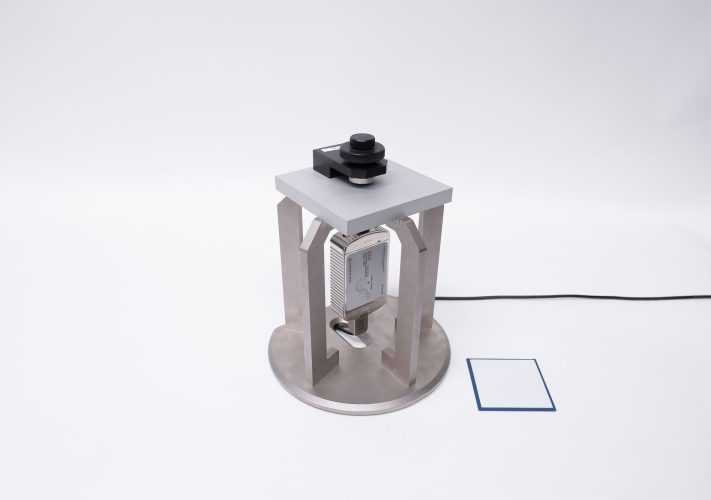Home » Products » Specialized Probes and Methods » Epsilometer
Epsilometer

The epsilometer is a low-cost fixture for characterizing complex permittivity of microwave substrates and PCBs over a very broad frequency range. It is based on the traditional capacitive measurement method in which a test specimen is surrounded by parallel plate electrodes. However instead of an approximate capacitance model, the epsilometer uses CEM inversion to extract complex dielectric permittivity.
Applications of the Epsilometer:
The epsilometer works by positioning electrodes on either side of a test specimen, to form a radio frequency capacitor. It is used to measure microwave substrates in applications such as IOT antennas, radomes or antenna covers, and PCBs.
Benefits of the Epsilometer:
- Lower cost alternative to similar systems that operate up to 1 GHz.
- Extended frequency range can measure up to 6 GHz.
- Requires very little footprint and can easily and quickly measure materials either in a laboratory or in production.
Additional Information
- The measured data and inverted permittivity results are automatically saved as text files (*.s1p and *.epsmu).
- Simple calibration using the Teflon calibration sample supplied with every system.
- Real and Imaginary or Tan Delta data plot display.
- Data can be saved in Memory or exported in a variety of formats for future reference and comparisons.
- User can switch between a linear and logarithmic frequency scale.
- User can navigate between different data displays from a single measurement.
- Suitable for testing ceramics (sample surface must be smooth and flat).

